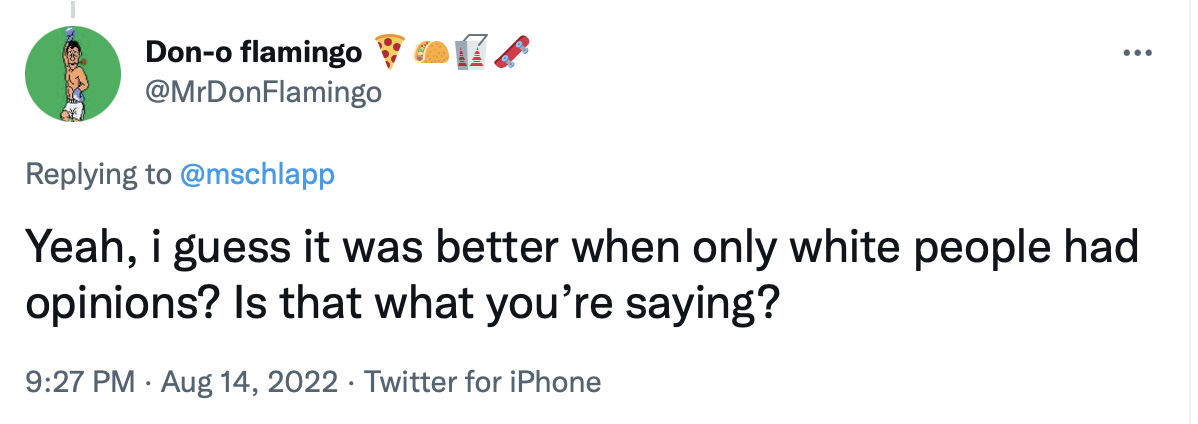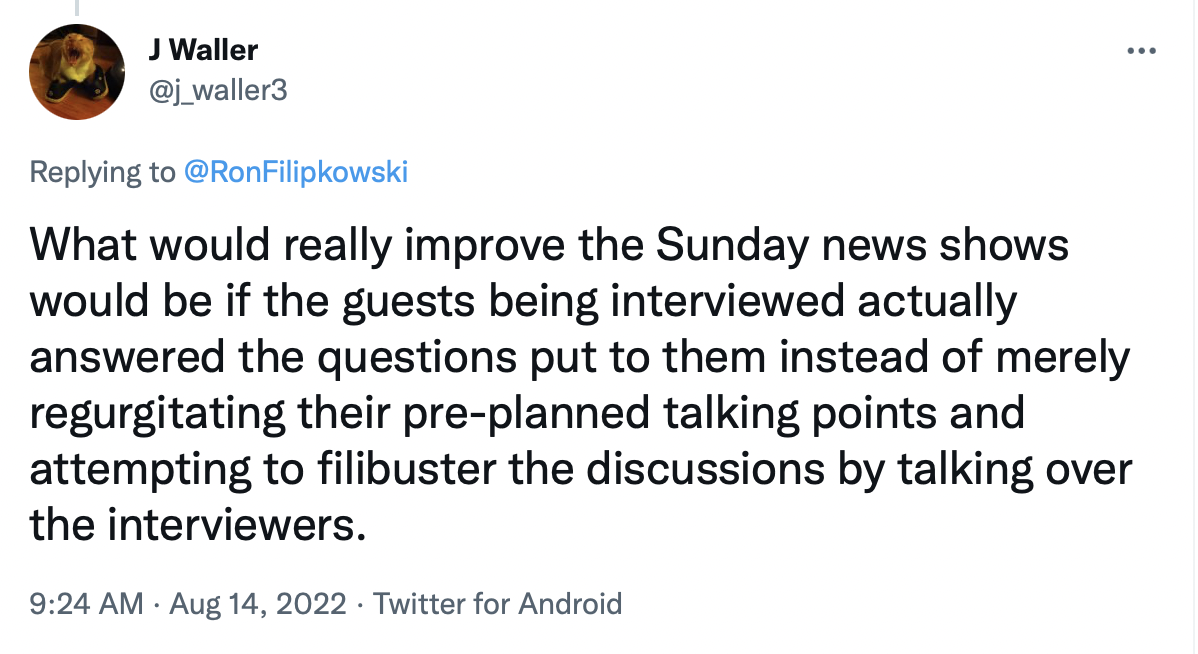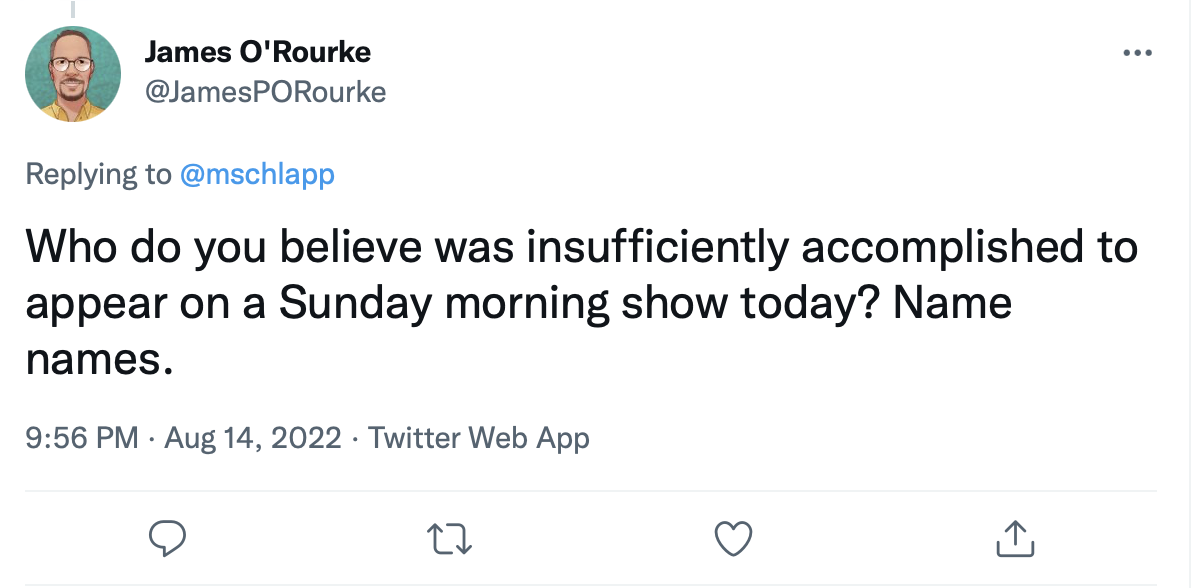Action Alert | Calling Out. Calling In. Calling BS.
At GenderAvenger, we believe that everyone has the power to measure representation, demand that leaders and organizations do better, and make sure women’s voices are present and counted in the public dialogue. When you see something, say something!
But how can you make the biggest impact when you speak up?
This week we were inspired to think more critically about how we call others to action and how to bring others into changing behaviors and ideologies that are harmful. The conversation that emerged in response to a tweet by Matt Schlapp (@mschlapp) on Twitter provides some very clear examples of what we mean:
There are a lot of rightfully disgruntled replies to this tweet. We are living in an era that prioritizes the optics of diversity. Let’s be honest, we could see MORE diversity on television shows and panels, and it’s still not enough.
But there’s a fine line between calling someone out, calling someone in, and calling someone on their BS. Here’s how we’ve begun to define these options. These are evolving definitions, and we welcome feedback from the community.
Calling out - very action-oriented and community-driven, intended to confront the accused and raise awareness of injustice. Calling someone out often includes elements of shame, cancel culture, character attacks, and zero solutions. This can result in a questioning mindset, but it can also lead the accused to shut down or go on the defensive instead of tackling the real reasons why the calling out took place, to begin with.
Calling in - more focused on investigating the intent of the injustice and exploring the positive outcomes that can result from restorative justice practices. This approach balances the needs of both those transgressed and those seeking justice. Calling someone in creates a teachable moment for all involved.
Calling BS - if executed properly, this can be synonymous with fact-checking or truth-telling. Calling someone on their BS includes exposing coded language or misconceptions, providing deeper context for how we’ve arrived at a particular injustice (and why that matters), or educating the group on how we might improve.
Many people mistake calling someone in and calling BS as calling someone out (cancel culture), but it’s all about your choice of words, intent, action, and outcome.
The following tweets are great examples of calling Matt Schlapp on his BS. We like these tweets mainly because they are not a direct attack on Schlapp or his character but rather decode what Matt meant and why that was so problematic:
Matt Schlapp’s tweet is a reflection of a larger systemic issue where the homogeneity of voices and white male majority in politics created the expectation that women and historically marginalized people do not contribute to political dialogue. Some individuals with this expectation operate with unconscious bias, and some act with malice. We get too caught up in determining which is which. Only through open dialogue can we get to the root of their words and develop strategies to overcome these ideologies. Conversations may not change that individual’s mind, but they may present an opportunity for us to investigate how we create meaningful change. Because ultimately, our goal is to change the systems that perpetuate inequality.
We’d be remiss if we didn’t acknowledge that this is an election year in the United States, a country with a lot of work ahead regarding diversity across all branches of government. But we ask that you not only consider “government” as the individuals writing legislation, upholding the Constitution, or leading on agendas and diplomacy. Political pundits and the media ecosystem are part of the political process, and who talks and for how long matters.
We need more women (and people of color) participating in the political ecosphere as elected officials, judges, pollsters, and pundits. We need candidates who embody and represent voices outside of the white male majority in politics. We need your voices and your questions to media and political representatives across the board.
Check out our past writings on women in the political sector and follow and support organizations like Represent Women, All In Together, Women’s Public Leadership Network, and She The People to learn how you can elevate women in democracy.
Psst… Sharing is caring! If you enjoy our weekly love letter to gender equality, pass it on to a friend, colleague, organization, or event planner you know!
📣🚨 There’s a fine line between calling someone out, calling someone in, and calling someone on their BS. Shoutout to Mr. Don Flamingo, J Waller, and James O’Rourke for showing us how it’s done. #GenderAvenger




